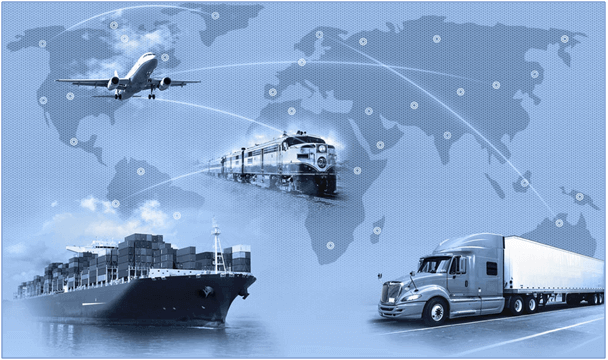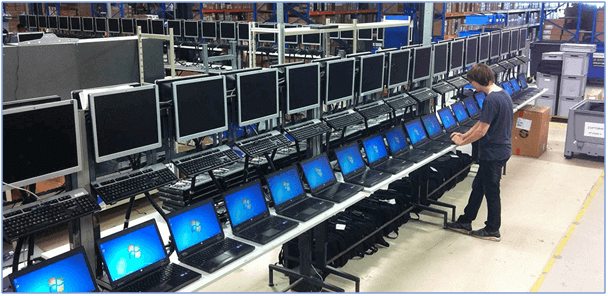Global sourcing is the process that goods and services are sourced from the international market. Although discussing on global sourcing, it does not only consists of products, but also about sourcing effectiveness such as low-priced yet skilful labour, economic aspects and inexpensive raw materials.
Low-priced raw materials and skilful labours are typically the purpose for Global Sourcing and this becomes more favourable and cost-effective for the company. Nonetheless, making the choice to source internationally can be one of the most crucial choice that the executives will encounter.
While global demand progresses further and better products and services, contest becomes more aggravated. Businesses must keep up with the diversifying of technology quickly simultaneously cutting down their expenses, enhancing quality, and boosting customer service at all stages of the value chain. This is the realism of worldwide trade.
The picture below illustrates the relative strengths and weaknesses of key factors from local sourcing to global sourcing.

Table of Contents
Global Sourcing
Sourcing globally beyond low cost does have certain advantages such as learning on doing business in potential market, intercepting skills or inaccessible resources domestically, developing another supplier/vendor sources to intensify competition and building up supply capacity. Scarce skills, unavailable resources or unproductive at home is an opportunity that can be obtain to expand manufacturing capacity and other technical capability.
Some essential benefits for global sourcing are follows:
• Cutting down overall costing such as labour cost is one of the key to success via global sourcing and outsourcing has increased that some company moving their operations overseas to obtain skilful employee with economical cost.
• Scalability of global sourcing has been increased each time when upgrading is applied on existing product or developing new product and global sourcing is one of the efficient and responsive way to achieve great ideas and professional skill with great experience around the world. Besides that, extra cost is non-existence because the recruited professionals can be dismiss once the project has ended.
• One of the reason of interruption in supply of raw materials is due to shortage of particular material in that country of manufacturing but however, existence of global sourcing can make things possible by importing material needed for productions.
However, problems can occur such as in the beginning, hidden cost that relates to getting to know the cultures and getting use to the time zone with trial and error while still learning and so does the monitoring cost will increase as well. Besides that, financial, political and legal is a risk to be considered due to economy surfacing. Moreover, losing grip on own intellectual property is also a risk to be considered especially in service industries.
There are numerous disadvantages to be considered such as hidden cost related to different cultures and time zone, unveiling the financial and political risk in some nation with emerging economy, high chances in terms of risk in loss of intellectual property and the monitoring cost relative to domestic supply will hike as well. The key disadvantages for manufacturing goods are known generally such as port shutdowns intruding supply and affections on struggling keeping track on product quality.
Logistics Costs
Since the distances are generally bigger, logistics costs tends to be higher when importing goods from international market. Proper comparison should reflect the most favourable mode (rail, truck, and air or ocean freight) by taking expediting and inventory costs including actual transport into consideration. Other than increased distance results in freight costs increment, express rises in freight demand also cause freight costs to spike.
Sourcing globally usually generates extra intermediaries, for example, brokers, customs clearing agents, international distributors and freight forwarders. The charges are usually small individually but the total can be substantial. It is not only freight, it is the intermediary storage, handling and the costs of unavoidable delays.
Another challenge while sourcing globally is the complication of the supply chain. As explained earlier, a broad range of intermediaries like the freight forwarders, brokers, customs clearing agents and international distributors may distant the consumer from the supplier. Not only will the cost be affected by these intermediaries but also the doubtfulness to the supply chain. The generative effect of these uncertainties can create an international supply chain that is hard to handle. Solely tracing a shipment at every stage of the procession can be a time consuming procedure.
Global sourcing makes lead times longer, which rises safety stock, and adds more time in transit and the average inventory cost will increase significantly. The picture below shows the various transportation mode for logistics.

Logistics Capability
If goods are not able to get from the market, all the great quality products will mean nothing. What are the kinds of transportation are available, internationally and domestically? In spite of everything, the goods have to be at seaport or airport for transit; are there any trustworthy transportation in the country? As soon as the cargo is ready for international transport, are there lift or space available?
Seasonal fluctuations and weather should also be taken into consideration. Having the flexibility with service providers is essential to implement backup plans rapidly in case the transportation lane or main plan becomes unavailable.
Product Quality
The standard of the goods has ramifications added to the unit cost on the balance sheet. Quality needs to be clear so that the vendor and consumer comprehend and are in agreement. If the product have concerns with the quality, it is more difficult to address with a supplier through time zones, geographies and cultures, than if meeting with a local supplier.
The picture below show an inspection of the product quality before shipment

Poor quality of the goods affects everything downstream, most visibly the rate of returns by discontented buyers. Returns deplete the business, using up resources that are more generally concentrated on obtaining good products out to the market instead of receiving bad products back in. Deficient product will need to be deemed obsolete as loss or sold at a discount which have an effect on the bottom line.
An important part of a well-organized supply chain is to have quality goods all the way through it. Trial and error may be involved in some cases but relationships develop as time goes by, some vendors stands out as providing a constantly premium goods. These are the relationships to nourish.
The full content is only visible to SIPMM members
Already a member? Please Login to continue reading.
References
Laseter, T., Ramachandran, C.V. & Leary, T.M. (1997). “Global Sourcing: Another Critical Purchasing Skill. STRATEGY BUSINESS”. Retrieved from https://www.strategy-business.com/article/17876?gko=f393f, accessed 15/03/2018.
Lau Chee Leng. (2018). “Eight Essential Steps for an Effective Global Sourcing Strategy”. Retrieved from SIPMM: https://publication.sipmm.edu.sg/eight-essential-steps-effective-global-sourcing-strategy, accessed 15/03/2018.
Monerul Denar. (2017). “Global Sourcing”. Retrieved from https://www.linkedin.com/pulse/global-sourcing-monerul-denar, accessed 15/03/2018.
Pankaj Tuteja. (2018). “Global Sourcing- A Brief Account of It”. Retrieved from https://www.linkedin.com/pulse/global-sourcing-brief-account-pankaj-tuteja, accessed 15/03/2018.
Purchasing & Procurement Center. (2017). “So what is global sourcing?”. Retrieved from https://www.purchasing-procurement-center.com/what-is-global-sourcing.html, accessed 15/03/2018.
Supply & Demand Chain Executive. (2006). “10 Factors to Consider When Sourcing Globally”. Retrieved from https://www.sdcexec.com/sourcing-procurement/news/10358008/guest-column-top-10-factors-to-consider-when-sourcing-globally, accessed 15/03/2018.

